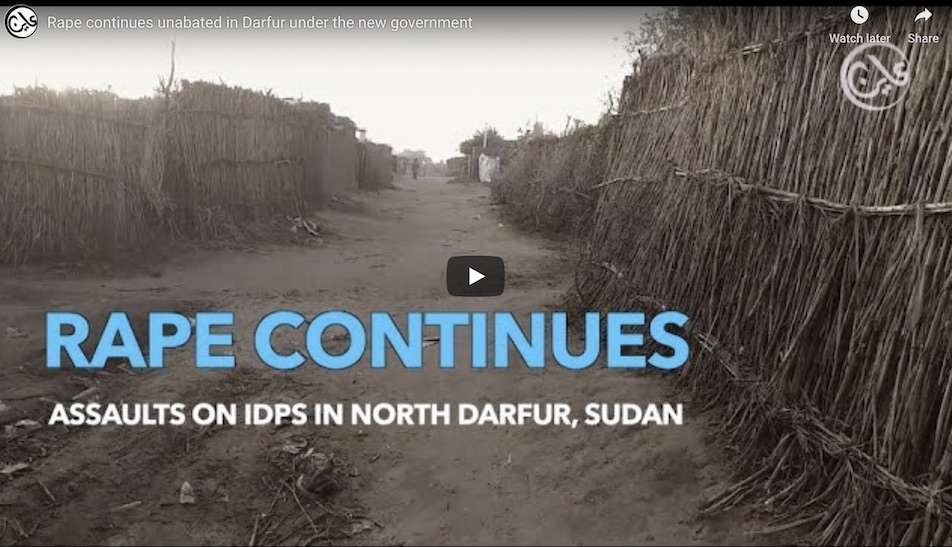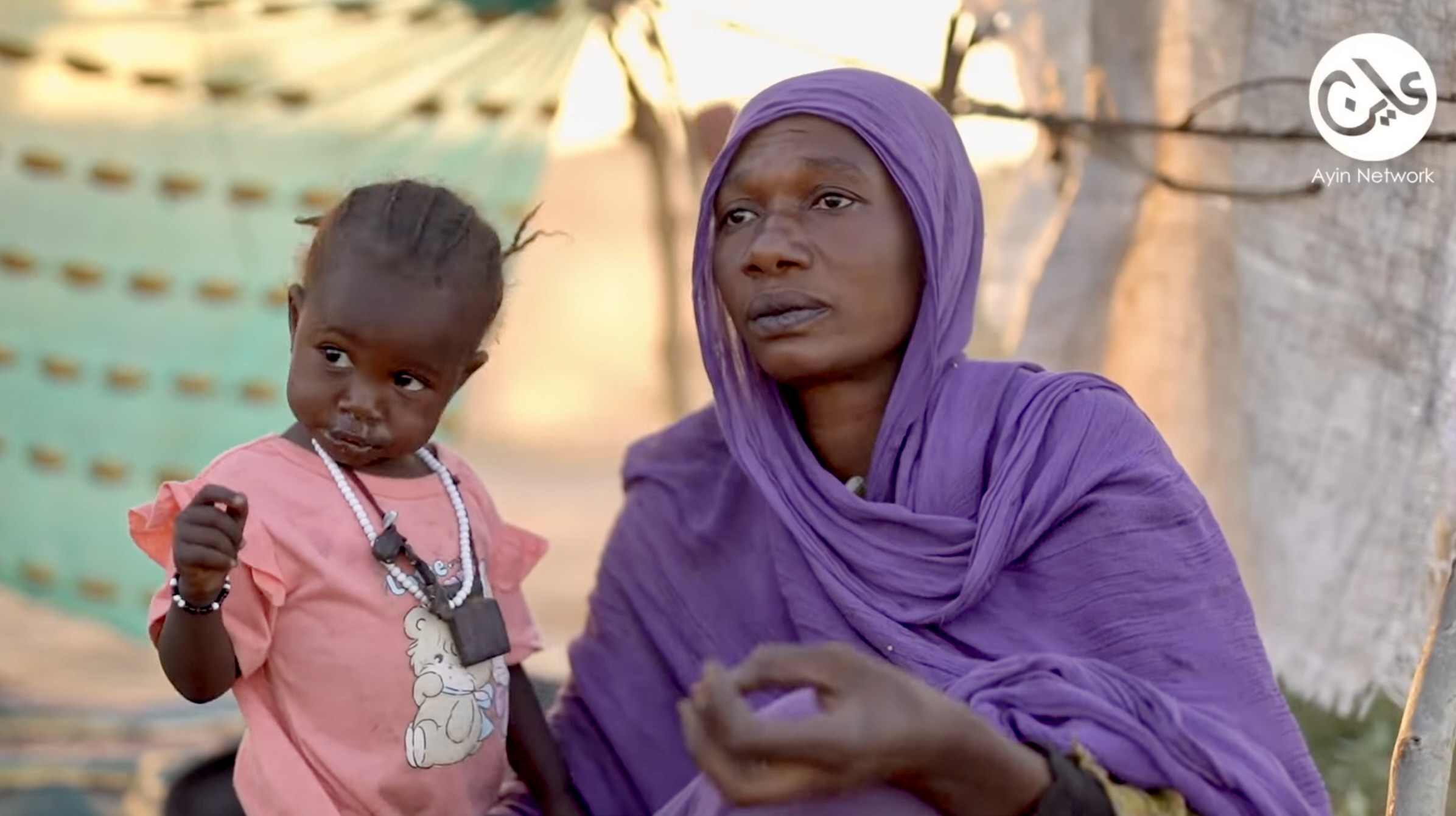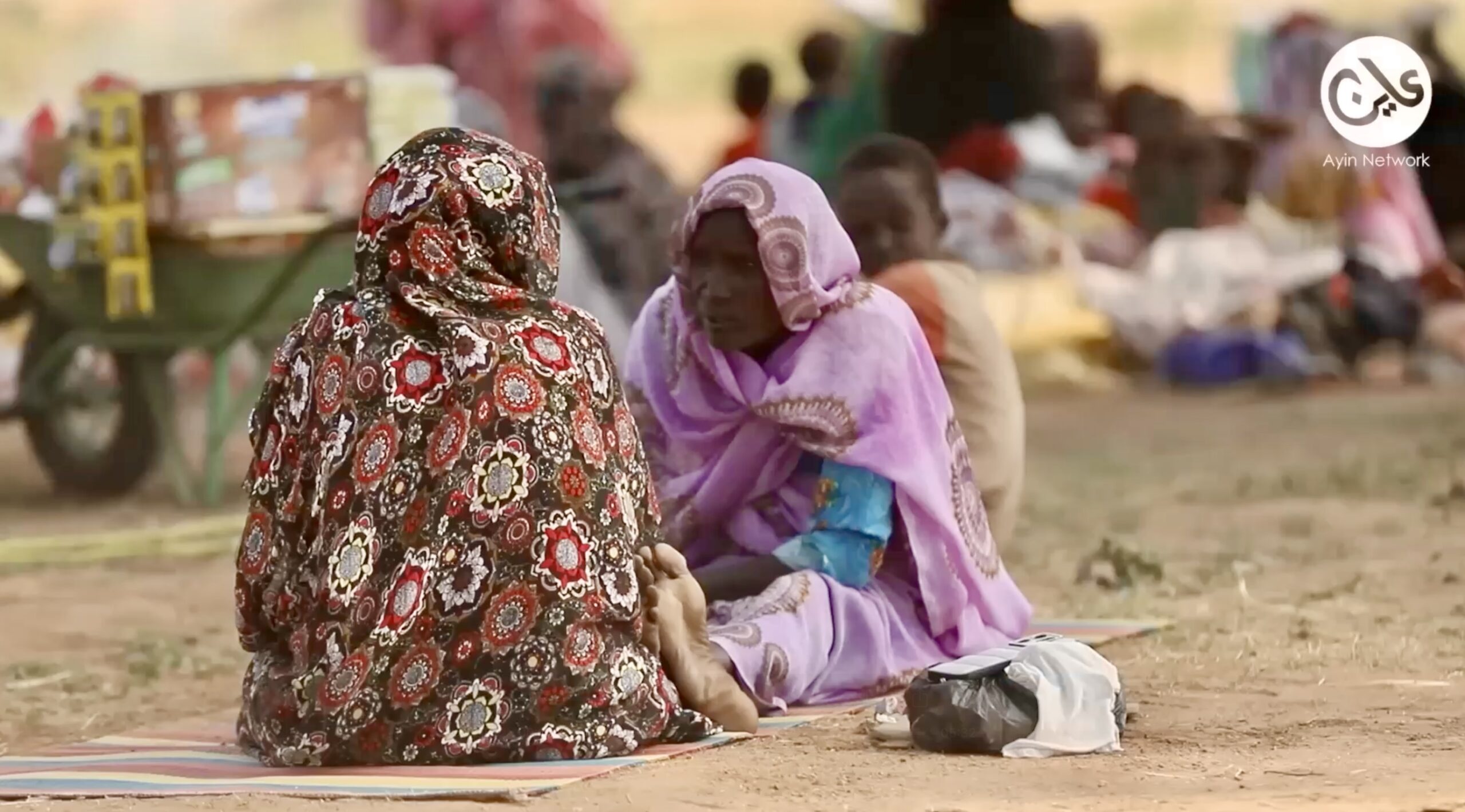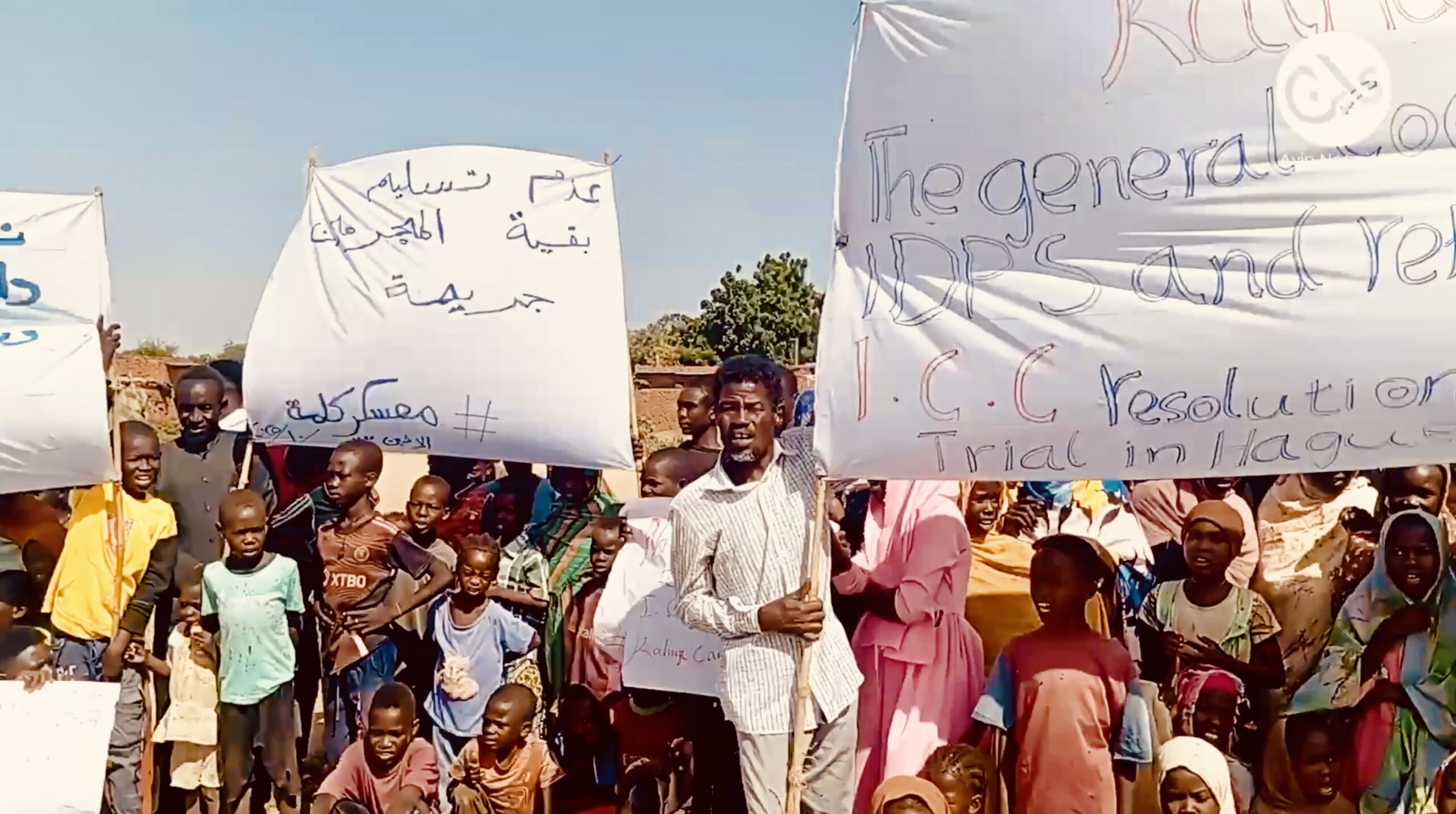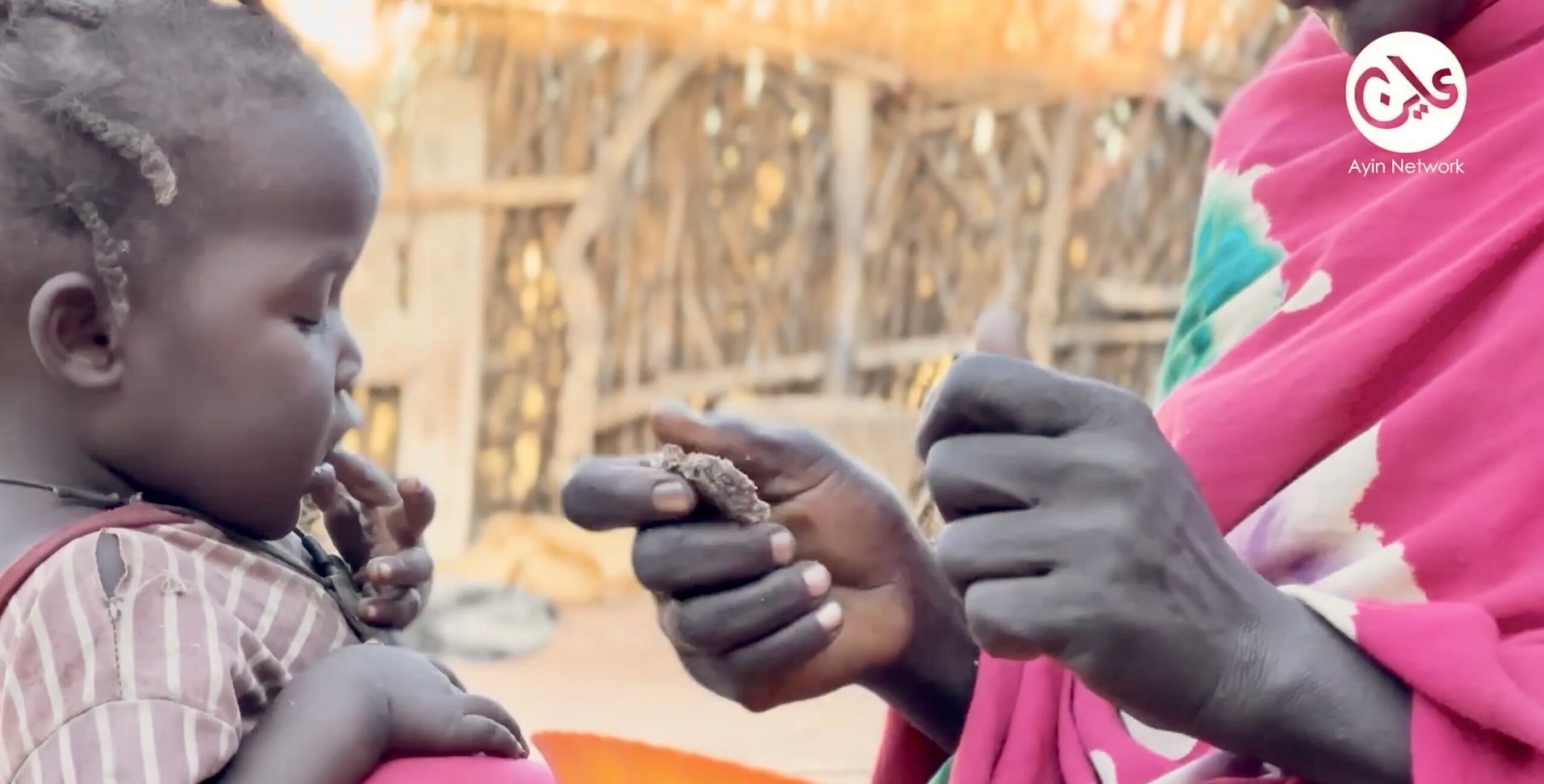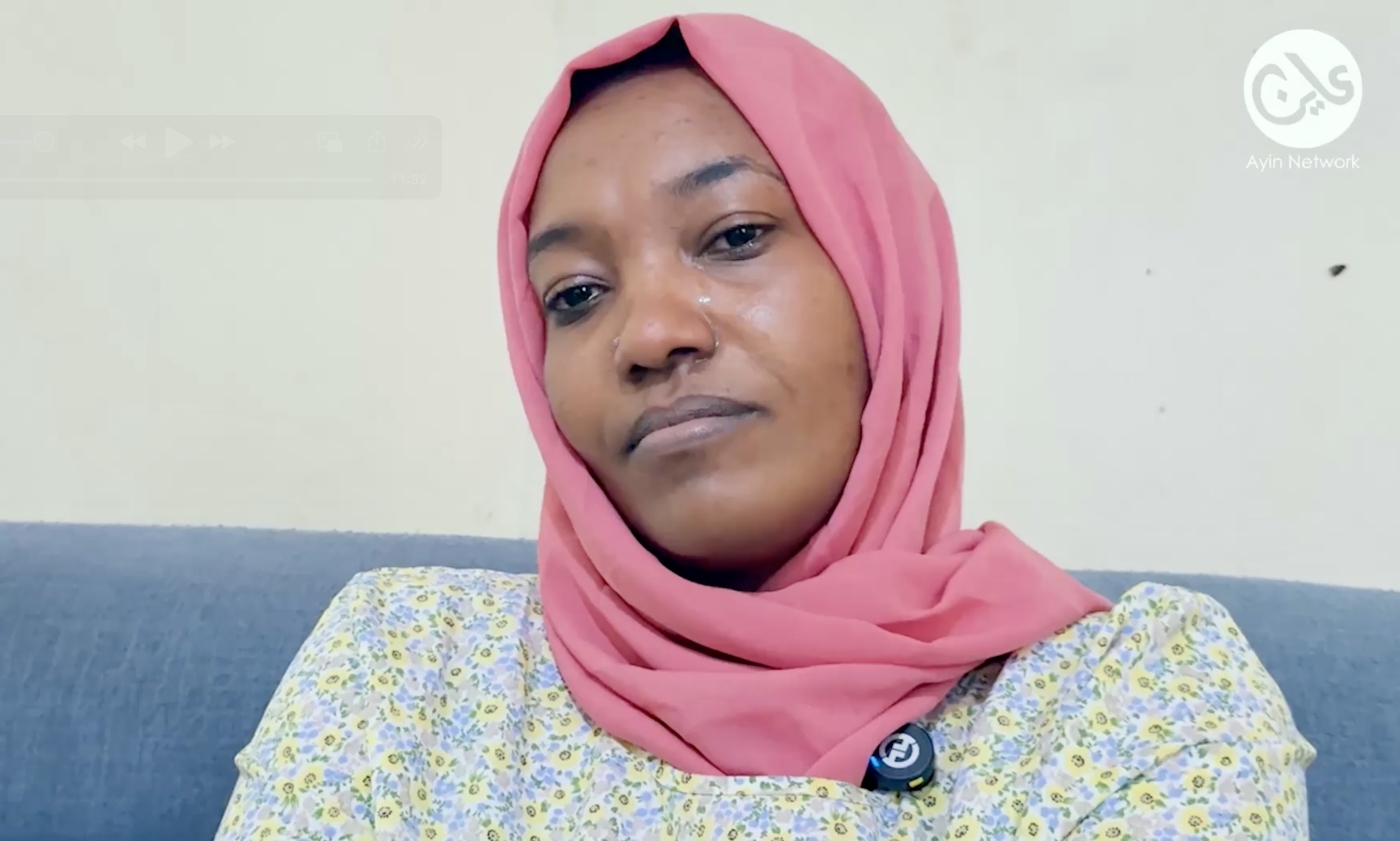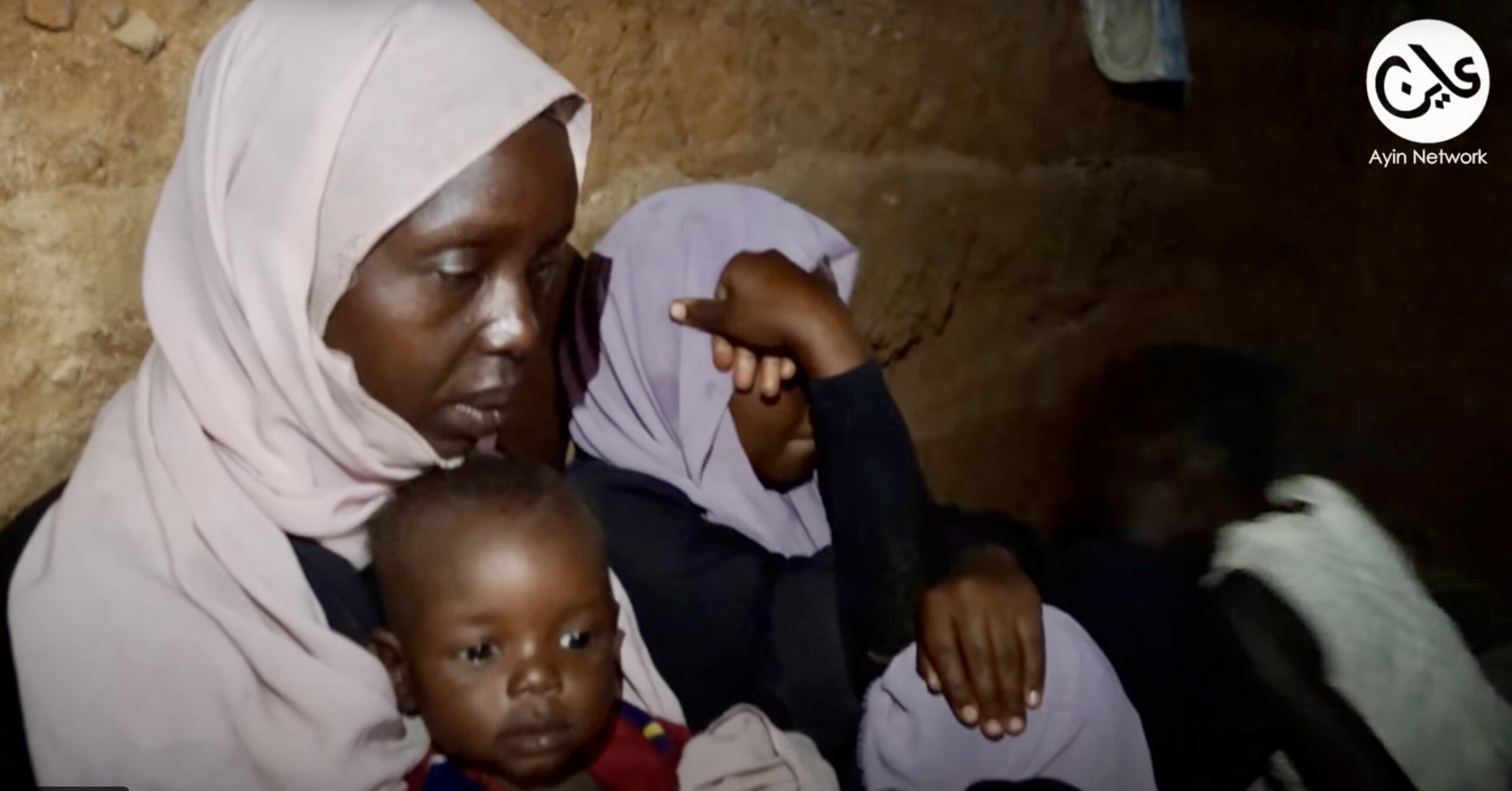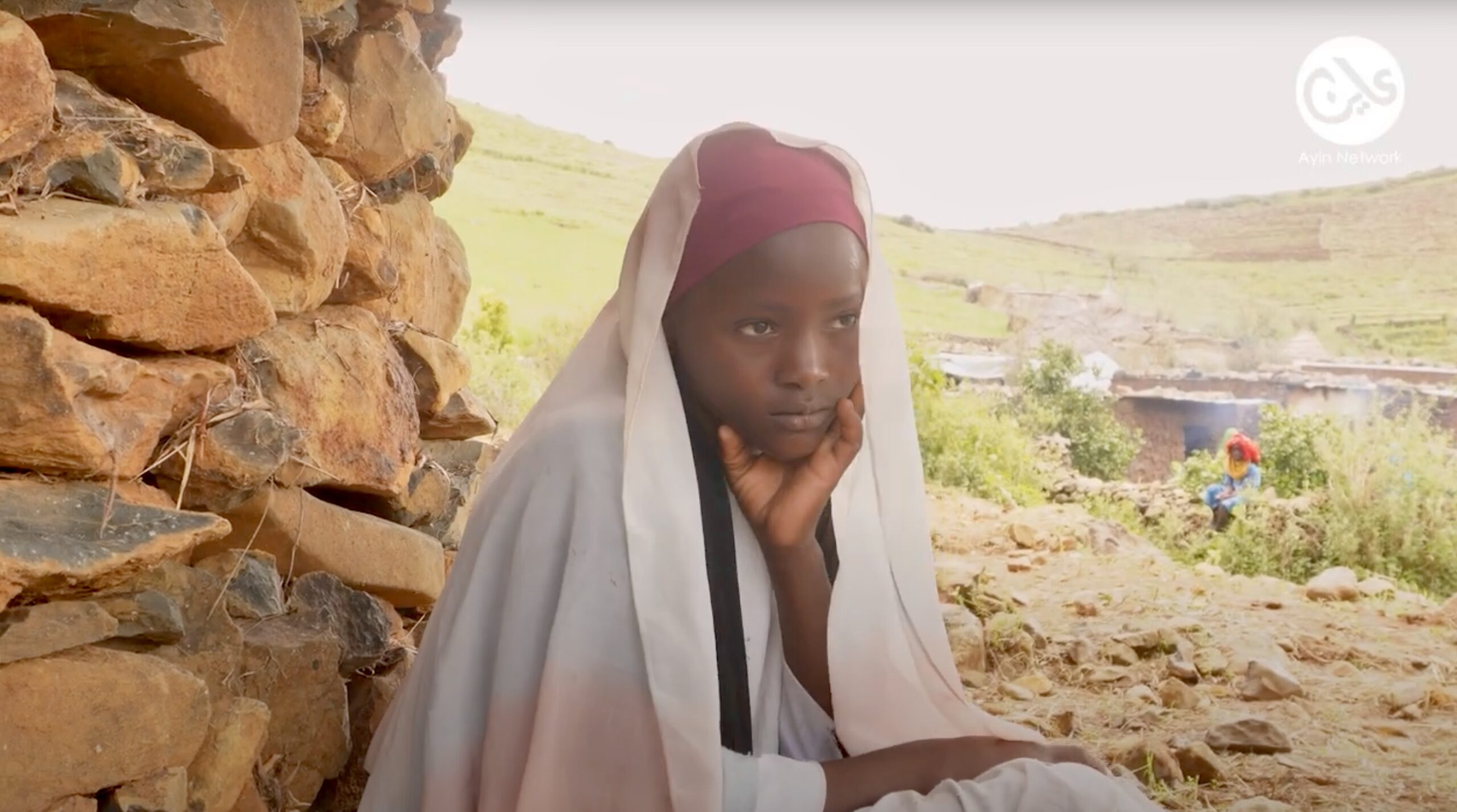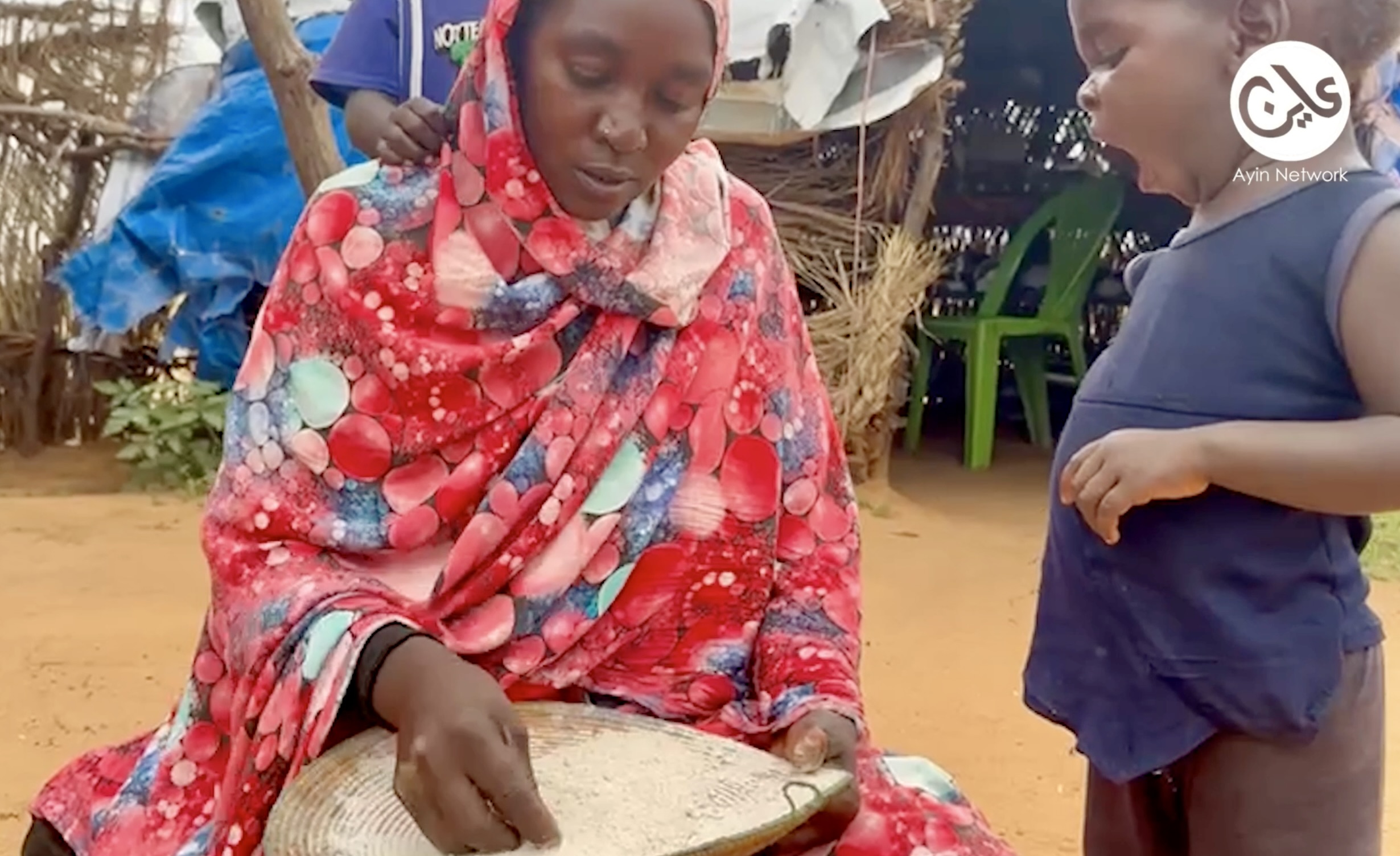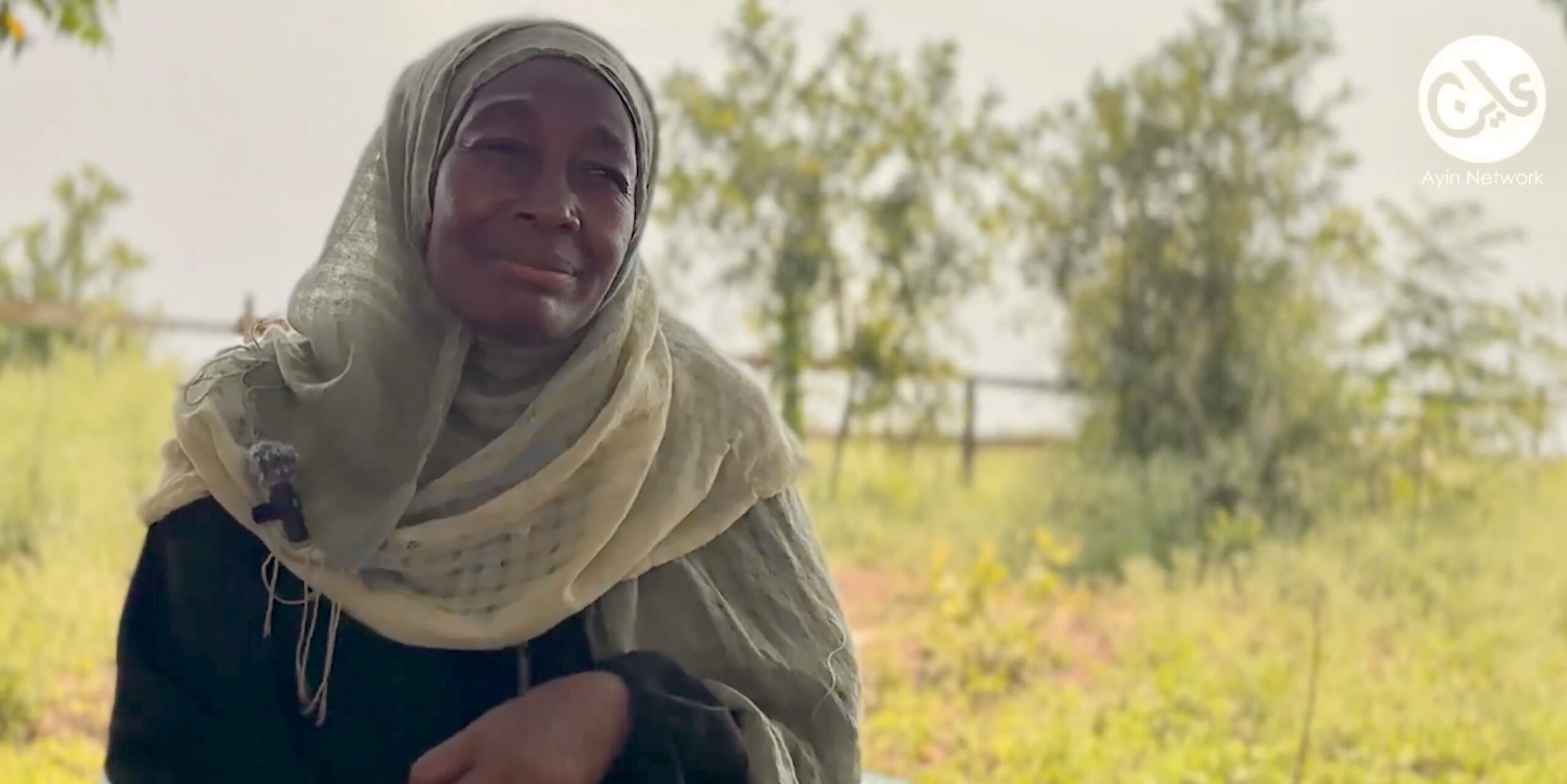Rape continues unabated in Darfur under the new government
They had done it before. The area was only minutes walking distance from the Internally Displaced Persons (IDP) camp in North Darfur state so their parents thought it was safe. Munirah and Selina*, 14 and eight years old respectively, had gone with their siblings to sleep at their small shelter in the farming area outside Zam-Zam IDP camp. Their parents were meant to join them in the morning. Munirah’s mother, Naima Dudu, was expecting her daughter to come back –instead, her husband received a phone call with devastating news. “They went out to take the animals, their father was supposed to meet them in the morning,” said Aisha Mohamed, mother to Selina. “The criminals attacked them, immediately they captured them and raped them.”
It was around midnight on 13 August, Munirah told Ayin, when four armed men on camels found the children sleeping at their shelter. Two of the men grabbed Munirah and put soil in her mouth to prevent her from screaming after she refused them entry and attempted to run. One man pointed a gun at her while the other beat her. Despite her diminutive frame, the two men raped Munirah. They beat her again. And then they raped her again in front of her siblings to humiliate her further. “When I woke up, I wanted to fight them and then they grabbed my younger sister and they raped her too in front of my brothers.”
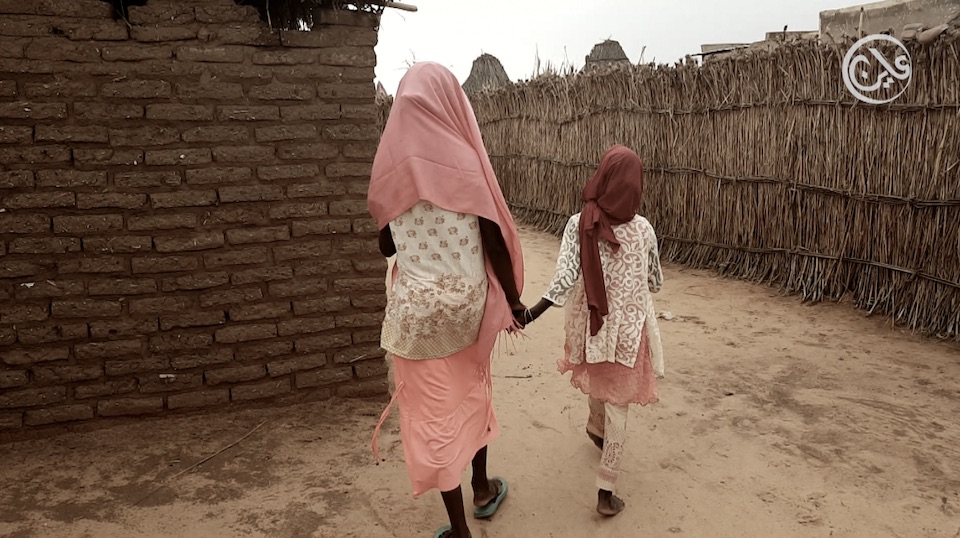
The two boys were also beaten and tied up, Munirah said, but the elder boy, Khaled, managed to loosen his ropes and fled. The armed men feared the boy would alert others and eventually left them. Once they heard the terrible news, Munirah and Selina’s parents ran to meet them. “We found Munirah crying,” Naima Dudu said. “Khaled is my eldest son, when he saw my dad he started crying and ran away. All the kids when they saw us just started crying.”
Unfortunately, the case of Munirah and Selina in Zam-Zam camp is not uncommon. “There are cases in Zam-Zam of residents who have been killed, beaten and raped – the number is so high I cannot count them all, the criminals just escape and get away with it –only in this case they were captured,” Aisha Mohamed said. Since the soil was dry, she added, it was possible for the IDP community to track their camel’s footprints and catch the perpetrators. In other circumstances, she said, the perpetrators are rarely caught.
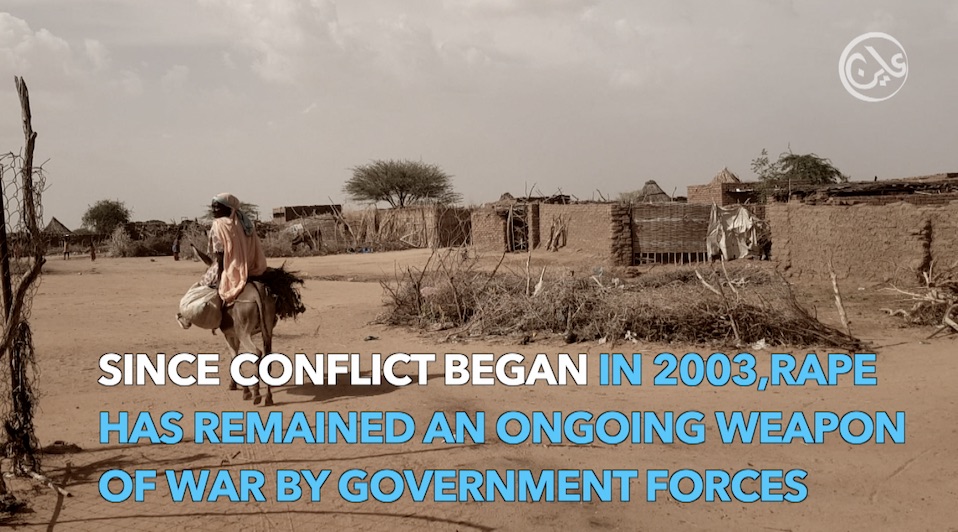
Women targeted across Darfur on the rise
Despite the new government coming to power and relative calm in North Darfur, cases such as that of Munirah and Selina’s remain a common occurrence and may even be on the rise, IDP residents told Ayin. “Attacks against women is one of the key problems that most women in Darfur suffer,” says Hawa al-Fadil Adam, the IDP Women Representative at another IDP camp in North Darfur, Shangil Tobai. “There are numerous incidents of rape in Shangil Tobai, including children as young as 11. If IDPs go outside the camp to farm or collect firewood, they are targeted.” Armed men outside the camp will shoot the men so it is generally women who go out for food and firewood due to the lack of food available in the IDP camps, Hawa al-Fadil told Ayin.
Many IDPs in North Darfur State had hoped in vain that the numerous militias aligned with the former ruling party, such as the infamous Rapid Support Forces (RSF), would be disbanded after a near 9-month revolutionary struggle toppled former president Omar al-Bashir and a new transitional government was set up.“These attacks have not stopped, even after the fall of the Bashir regime and the formation of a transitional government,” according to Zam-Zam IDP Camp secondary school teacher Hassan Saber Goma. The long-time camp resident and community leader believes the rate of rape cases may actually be increasing since the new government came into power and not decreasing as hoped.
It is a theory supported by the Under-Secretary-General for Peacekeeping Operations, Jean-Pierre Lacroix. During a briefing to the UN Security Council in November, Lacroix said cases of criminality are on the rise in Darfur this year as authorities have shifted their attention towards security challenges in the capital, Khartoum, ignoring the plight of the near 2m Darfur IDPs. Lacroix added that over eight million people are in need of assistance or protection in Darfur.
The diminished presence of the African Union-United Nations Hybrid peacekeeping force, UNAMID, has also contributed to increased insecurity around the Darfur IDP camps, according to a Darfur-based human rights activist who prefers anonymity due to his work. UNAMID has scaled back its operations, with patrols only taking place in central Darfur along with much smaller operations than in the past in North and South Darfur. “They are only in three or four areas of North Darfur these days,” the activist said, “and with UNAMID not around during the rainy season when people harvest—IDPs are more prone than ever to sexual violence and attacks.”
Hala al-Karib monitors cases of sexual and gender-based violence as the Regional Director of the Strategic Initiative for Women in the Horn of Africa (SIHA), a women’s research and advocacy organisation based in Sudan. Al-Karib also believes the rate of sexual assault in Darfur has not diminished under the transitional leadership and may have even increased despite the major role Darfur women played in the revolution. “Women in Darfur made a big contribution to the revolution and risked their lives in the process when they took to the streets to change the former regime. It’s a commitment and a duty for the new government to protect them [but] unfortunately there are no strong steps in place to provide protection for women in Darfur.”

Shame and silence
In 2018, UNAMID documented 122 incidents of sexual violence involving 199 victims across Central, North and West Darfur states. But this estimate, the same report admitted, constitutes only a portion of the total figure since many women prefer not to report these incidents. The stigma and shame attached to cases of rape is high within the Darfur community, the human rights activist said, especially among older women and married women. “In many cases, you would have to infer whether sexual assault has taken place or not. If a subject mentions being beaten in her legs, for instance, this sometimes suggests sexual assault since the perpetrators do this to prevent women from moving.”
Halima Yacob* had gone out with several other women from Zam-Zam Camp in 2017 to collect firewood. A few metres away from her friends, two men in army uniforms with concealed faces raped her out in the open. “They raped me there, I told my friend but she told me to keep quiet,” Yacob said. “I asked her and she told me simply that these are not good things to talk about.” Halima Yacob also told her aunt and she gave her the same advice. “All the aunties [of her] advised her to keep quiet, so she kept quiet for two or three months and then the stomach became visible,” explains Halima’s aunt, Maryam Mohamed. “When her stomach appeared, she told us this was due to the forest incident. We wanted to know more but she simply said, ‘the forest’.”
Suspecting Halima Yacob had brought shame to the family by having a child without wedlock, Yacob’s uncles tied her up and demanded an explanation, threatening to beat her for perceived illicit behaviour. Eventually, Halima Yacob had to confess how she conceived her baby and gave birth by cesarean in hospital, Maryam Mohamed said. Maryam believes there are many women within Zam-Zam IDP camp who have been assaulted like her niece who fear to report these incidents, allowing the perpetrators free reign to target displaced women again in the future.
The majority of sexual assault in North Darfur, IDPs told Ayin, are perpetrated by armed pastoralists that roam near the farmlands and generally occupy the land once owned by the displaced. The 2018 UNAMID monitoring report claimed 80 percent of perpetrators of sexual violence in Central, North and West Darfur states were described as armed men. “These attacks are always from the Arabic tribes,” Hawa al-Fadil Adam from Shangil Tobai said. “They are armed, they can do it in the presence of their leader and may even be instructed personally to commit rape crimes. So what is to stop them?”
According to the Darfur-based human rights officer, militias use rape as a tool to humiliate and control the movements of the IDP community. “The issue of Darfur is land,” he said, “Everyone believes this land belongs to them. So they will terrorize others to ensure they remain off the land.”
Unfortunately, the tactic has largely worked. IDPs have grown increasingly afraid to move outside the confines of the camps – allowing the pastoral militias freedom to roam and utilise fertile land that once belonged to others. “It’s happening to a lot of people, not just me alone,” Halima Yacob says. “All the girls who use to go out to the forest with me cannot go anymore, they don’t want to go far distances and remain in places where you can still see the camp.”

Impunity and prevalence
The militarization of society — where armed groups are present in civilian areas without controls and enjoy high levels of impunity—ensures cases of sexual violence persist in Darfur. According to al-Karib, the rate of successful litigation against rape cases for girls over 15 years old is less than one percent. “We know that perpetrators of abuse against women in Darfur are not held accountable. We know that when people go and submit a complaint against perpetrators at a prosecutor’s office, the case will not go anywhere –for that reason the rape cases become common since they know they will not be punished.”
To prosecute an RSF member, for instance, is essentially impossible since they enjoy more power than the police force, Nyala-based police officer Ali Osman * told Ayin in a former interview. “I can’t do anything,” Officer Osman said in August, “those people are outside the law and can kill me.” In the rare instances a case is filed against an RSF officer, authorities simply transfer him to another place, avoiding arrest.
Police officers generally avoid following up rape cases, Hawa Al-Fadil said, forcing IDPs to venture out of the camp with only sticks and their hands for protection. “The [former] government has removed weapons from civilians but left them in the hands of criminals.”
Potential solutions
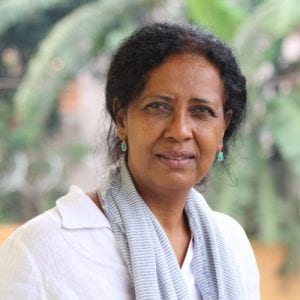
The first thing that needs to take place to reduce these assaults, Al-Fadil says, is to disarm the militias. Once this is achieved, those who commit crimes should be brought to justice. But to accomplish this while the Deputy Head of the Sovereign Council is also the head of the RSF, Lt. Gen. Mohamed Hamdan Daglo (aka “Himmedti”), appears a tall feat.
Instead, Al-Karib suggests, the new transitional government can initiate legal reform while developing the capacity of the prosecutor’s office and police stations. The SIHA Regional Director suggests amendments to the Criminal Law, for instance, where the legislation has kept unclear evidence standards that allow offenders opportunities to evade prosecution. Finally, the new government should join international conventions including the Convention on the Elimination of All Forms of Discrimination Against Women (CEDAW), she added.
While many IDPs in Darfur appreciate the fact that change is a slow process, many believe authorities can do more to improve their situation. They don’t ask for much, Al-Fadil says, “We only wish that we had security and that people can live in peace and be free.”
* Names changed to protect identity




